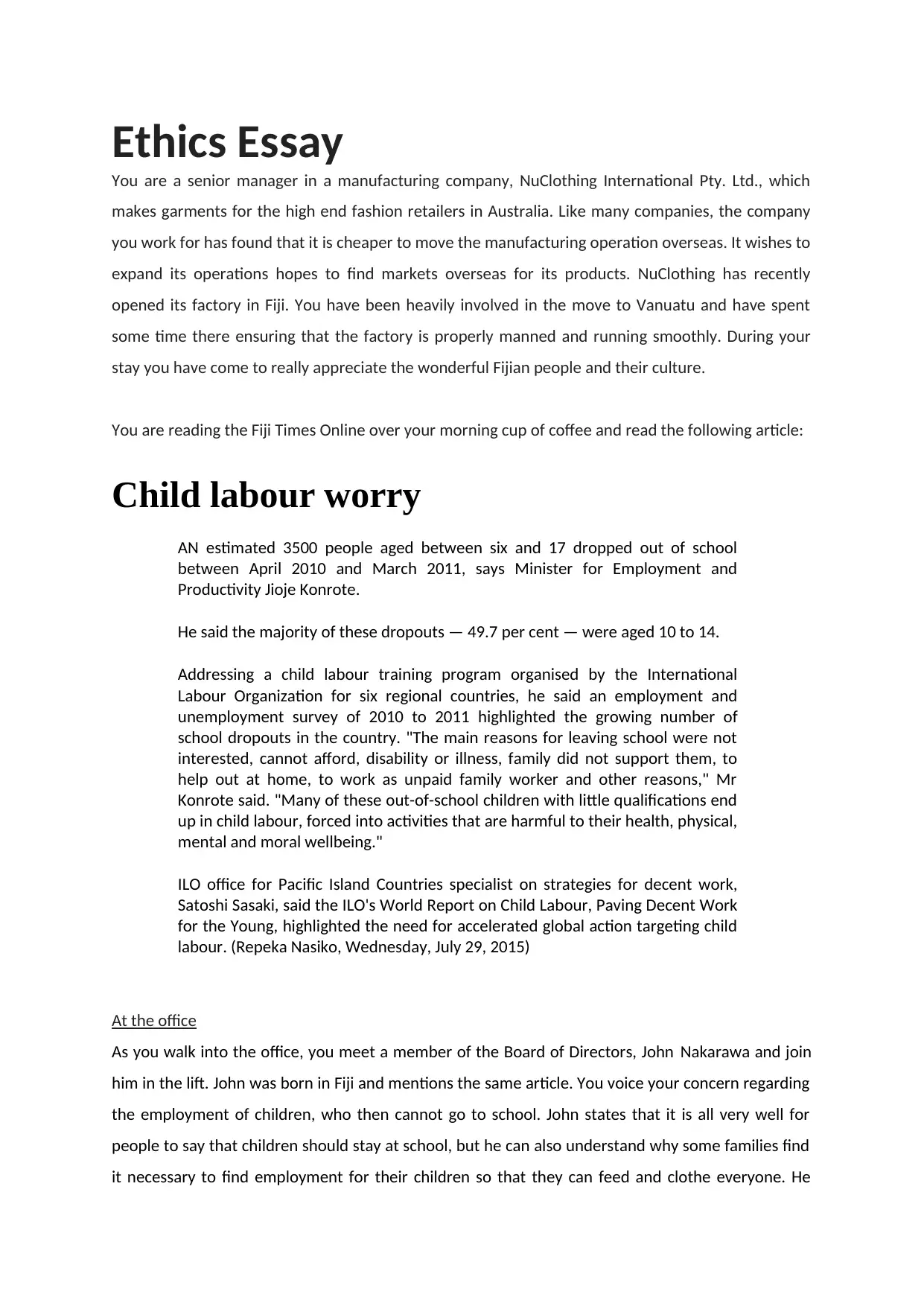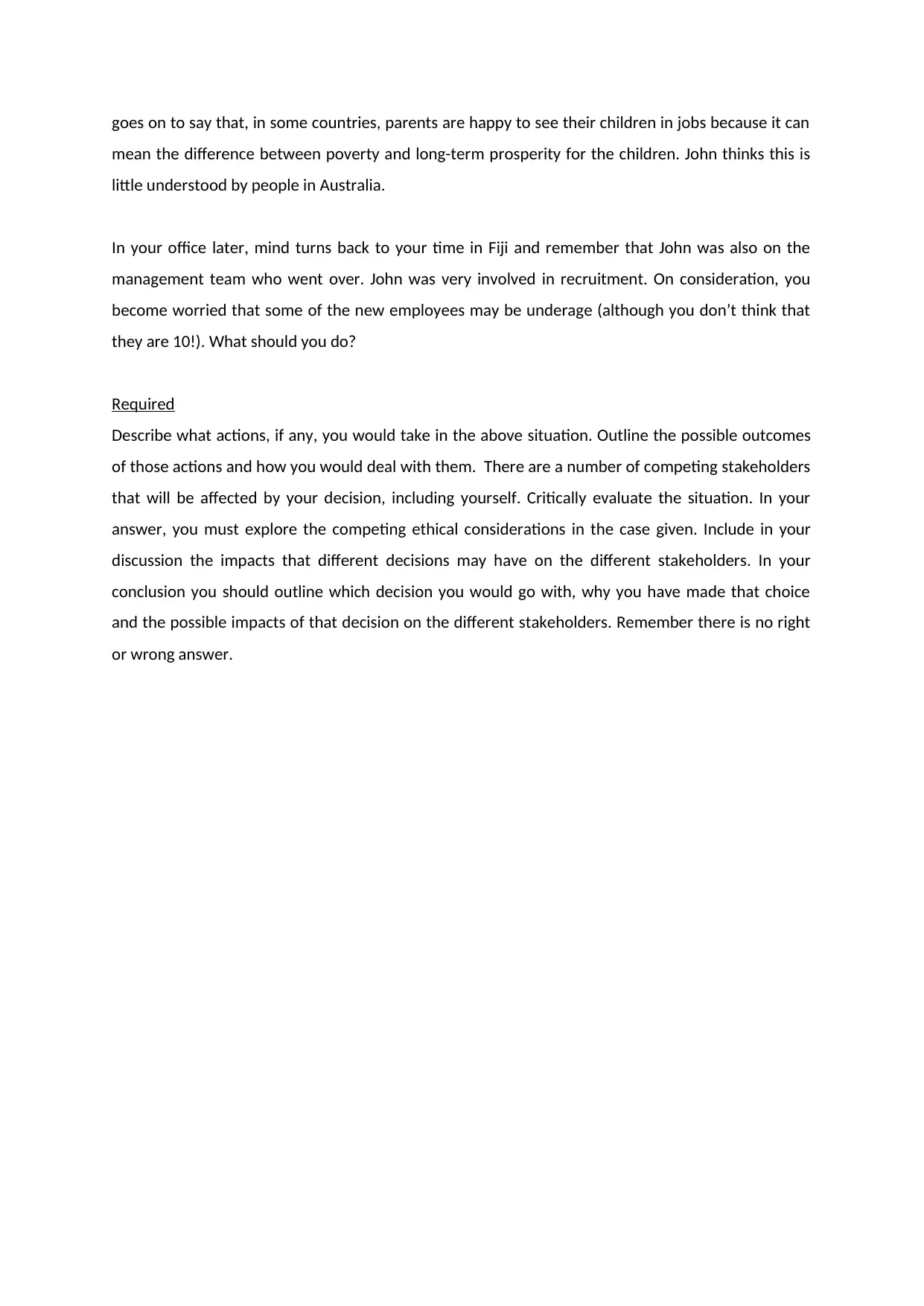Ethics Case Study: Child Labor and Business Practices in Fiji
VerifiedAdded on 2019/09/30
|2
|705
|37
Case Study
AI Summary
This case study presents an ethical dilemma faced by a senior manager at NuClothing International, a garment manufacturer with operations in Fiji. The manager is concerned about potential child labor practices within the company's Fijian factory, prompted by a news article highlighting the issue. The assignment requires the manager to analyze the situation, considering the perspectives of various stakeholders, including the company, employees, the Fijian community, and the manager themselves. The manager must outline the actions they would take, considering the potential outcomes and the ethical considerations involved. The case emphasizes the competing interests of economic viability, social responsibility, and the well-being of the children. The assignment calls for a critical evaluation of the situation, exploring the impacts of different decisions on stakeholders and concluding with a reasoned decision and its potential consequences.
1 out of 2



![[object Object]](/_next/static/media/star-bottom.7253800d.svg)